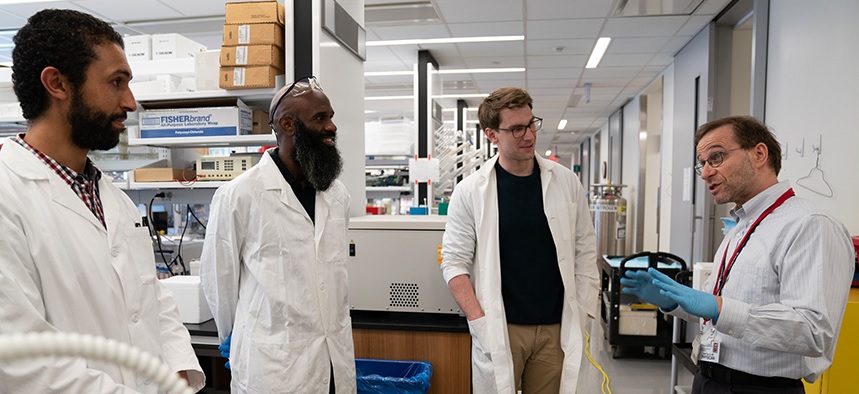Yet another promising new drug has been approved by the FDA for treatment of relapsing forms of multiple sclerosis. Tyruko is a biosimilar disease-modifying therapy (DMT) – meaning it is functionally the same and has been shown to work throughout the body just as another drug has – in this case, Tysabri. Tyruko will be administered the same (monthly infusion) and has no clinically meaningful differences from Tysabri. They have the same safety, efficacy and side effects. Like Tysabri, Tyruko ultimately prevents lymphocytes from crossing the blood-brain barrier into the central nervous system, which reduces damage to nerve cells and can halt disease activity. This advancement will offer quality treatment at significant cost savings, therefore expanding accessibility to improved healthcare.
This exceptionally innovative feat has been made possible through research efforts supported by donors like you. Biosimilars will offer more accessibility and promise for people affected by relapsing MS because not only will this new treatment option soon be available, but Tyruko is the first biosimilar in the country to be approved for treatment of any diagnosis.
We might equate a biosimilar to a generic – generic treatment options tend to follow the approval and administration of nonbiologic drugs, whereas biosimilars are made for biologic drugs, or drugs that are comprised of living organisms.
“Biosimilars are an important treatment option because they have no clinically meaningful differences from their reference medicines. Prescribing them can increase accessibility to affordable medications, improve adherence and help contain healthcare costs,” said Bari Talente, Executive Vice President, Advocacy and Healthcare Access.
The costs of biologic treatments like Tysabri can be exorbitant due to the extensive research and testing required to ensure they are safe and effective for those who need them. Infusible DMTs are notoriously linked to their high expense. While the cost of Tyruko has not yet been announced, a recent study shared that the average annual cost of Tysabri exceeds $100,000.
Biologic drugs — like Tysabri —may be sold for 12 years under their patent restrictions, at which point other drugmakers are allowed to create biosimilar iterations. This influx of options and market competition can lead to lower costs for biosimilars. And due to the near identical nature of efficacy, biosimilars don’t require additional testing and study, which further relieves expense associated with the debut of new drugs. The availability and accessibility of biosimilar treatments can alleviate cost burden on families while offering the latest innovative medicine needed to treat the symptoms of their diagnoses. Discoveries like this are monumental to the world of MS research, and only made possible through the intentional support of donors like you.
Learn more about biosimilars and their place in the MS movement with the recent Ask an MS expert episode, hosted by Jon Strum.
